Dinner at 11am and the world’s best sleep score: is Bryan’s quest to live forever working?
He made a fortune in tech and venture capital and at 47 is trying to wind back the clock on his once ‘debaucherous’ lifestyle, turning himself into a lab rat in a bid to become 18 again. But could you live like this?
![‘I’m trying to solve [the problem of mortality] for human existence and intelligence in the galaxy.’ Picture: Magdalena Wosinska](https://content.api.news/v3/images/bin/c41a33474305a08f516bd2292d72a3bc?width=650)
If you haven’t heard of Bryan Johnson or watched the Netflix documentary about him (it’s called Don’t Die: The Man Who Wants to Live Forever), all you need to know is that he’s a 47-year-old American who made a fortune as a tech entrepreneur and venture capitalist – and has now given over his life, and body, to the science of longevity.
He has essentially turned himself into a human lab rat, undergoing hundreds of tests and studies on every human biomarker imaginable to discover the best ways to stop the process of ageing, or maybe even to reverse it. And what he does is unconventional, to say the least. He eats dinner at 11am and has swapped blood with his 17-year-old son, to name two of the hundreds of things I’d never heard of a person doing before. So I knew our interview would be one of the weirder conversations I’d ever had. What I didn’t anticipate was that it was going to be challenging in a deeper way – that we’d talk about the meaning and purpose of life, and that I’d feel challenged about what I know and believe to be true. Johnson believes (agree with it or not) that we’re at the bleeding edge of a new kind of reality.
BARI WEISS: Brian Johnson, you’re definitely the only person I’ve ever interviewed who has a betting page on Polymarket for your night-time erection. That is a first for me. And that’s just one of hundreds of markers you measure every day, from your urination speed to brain plaque. You’ve spent millions of dollars on this process. Why are you trying so hard not to die?
BRYAN JOHNSON:Don’t Die is actually the oldest and most played game in human history. Most religions are selling a version of Don’t Die. It’s “Do these things, don’t die.” You have kids so you can pass on your lineage. Don’t Die is the most fundamental of all human desires. What I’m suggesting is that right now may be the first time that legitimate Don’t Die is here. Whereas before we’ve had to make up stories, now it’s technically, potentially possible. What I’ve done as a project is I’ve said: Can I slow down my speed of ageing to the greatest extent of any human on the planet? And can I then eliminate all the sources of death? Can I become the most Don’t Die person in history?
BW: Let’s establish for people just how differently you live your life in terms of diet, exercise and sleep. How many pills and supplements would you say you take every single day?
BJ: Around 50. These things are meticulously measured in my body, and we determine which things are actually slowing down my speed of ageing. So they’re not random. This is on the cutting edge of science and technology of how you actually isolate what is causing death in the body and how you neutralise it.
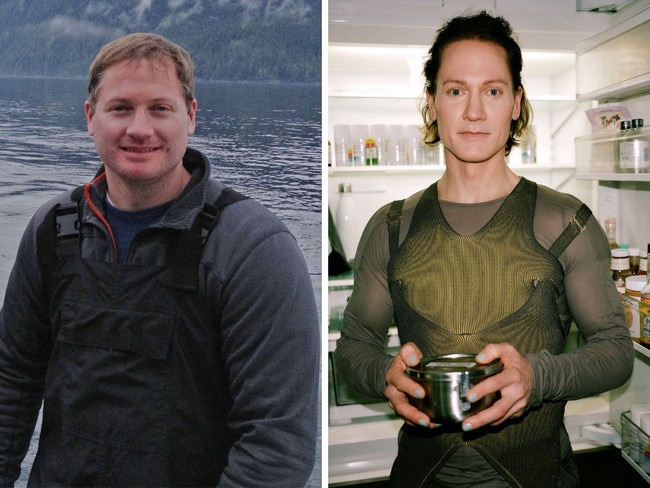
BW: The way you eat might be the hardest thing for people to fathom. Most people eat three meals a day plus a few snacks. But you eat all of your meals between 6am and 11am, right?
BJ: Yes, and the reason is I’ve built my life around sleep. My last meal of the day is about nine hours before bedtime. I do that because my body then finishes digestion, and it will lower my resting heart rate. And if my resting heart rate is around 44 beats per minute when I go to bed, I’m going to have a perfect night’s sleep.
With sleep, I wanted to demonstrate something that no one had ever done: I wanted to have the world’s best sleep score. And so I systematically went about doing hundreds of experiments to find out, what produces perfect sleep? And I had eight months of perfect sleep with a wearable. [For context, there are millions of people who have these wearables who haven’t had a 100 per cent score in their life.]
But in terms of food, we had this idea that every calorie that enters my body has to fight for its life. And so we went through all the medical literature and we said, “What are the superfoods among superfoods?” And then we didn’t stop there. We began testing every food source. And we would look at the nutritional label and say, “Is it accurate?” We tested for heavy metals. We tested for pesticides and herbicides, and we found out that the global food-supply chain is atrociously contaminated. And so then we started sourcing our own foods, doing our own tests with our own labs. And so basically, every calorie fights for its life. It’s superfoods, and everything is sourced and tested.

BW: What foods do you eat?
BJ:My morning breakfast is a dish called Super Veggie – it’s broccoli, cauliflower, black lentils, ginger, garlic and hemp seeds. The second meal is called Nutty Pudding, and it’s macadamia nuts, walnuts, flaxseed, sunflower, lecithin, blueberries, raspberries, blackberries, pea protein, and some collagen. And then the final meal of the day is some combination of vegetables, legumes, berries, nuts, seeds. So I’m plant-based. I vary them day to day, but they’re roughly in the same categories. I get around 30 grams of plant fibre per day. The typical American gets less than 10. I don’t eat any sugar. I don’t eat any junk food. And then I have a lot of extra-virgin olive oil; I have three tablespoons per day of high quality extra-virgin olive oil.
BW: That seems like a very ascetic meal plan for someone that’s exercising the amount you do, and for a man of your size [1.8m tall, 79kg]. Are you hungry most of the time?
BJ:I’m typically in a light state of hunger.
BW: Is that painful or pleasurable to you?
BJ: Initially, it was uncomfortable. But I’ve really grown to appreciate it. Being satiated is nice, but the slight hunger is really nice. I feel more alert. My energy has boosted. We all know what it feels like after a phenomenal night’s sleep, or after exercising really well – you feel lucid and clear and energetic and all the amazing things about consciousness. And that’s what I feel all the time. So my mood is stable and robust. I don’t get really beaten down. There’s just so many benefits to this way of living.
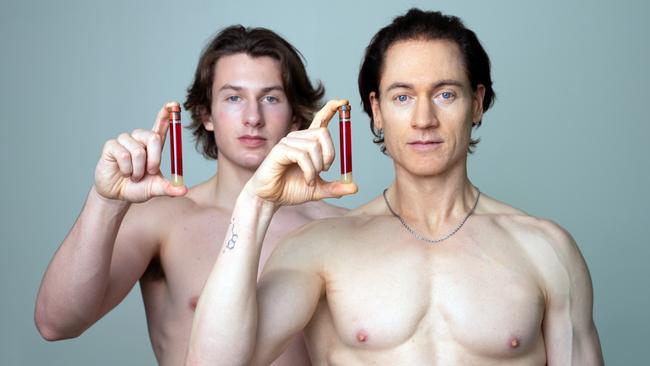
BW: Some of the other things you do don’t fit neatly into the buckets of diet, exercise or sleep: you do hair growth therapy, red light therapy, audio therapy, body fat scans, routine hyperbaric oxygen therapy. You do MRIs, blood and stool tests. You experiment with drugs like metformin and plasmalogens. You had 300 million young Swedish bone-marrow stem cells injected into your shoulders, hips and joints. You received follistatin gene therapy in Honduras. You did a total plasma exchange, removing the plasma in your body and replacing it with something called albumin. You inject yourself for brain health. You get these bloody facials. I could go on … what’s the point of all of this?
BJ: Everything you’ve listed is a scientific, evidence-based approach on how to reduce the biological age of the organs of my body. We’re trying to get my body to be age 18 across the entire body, which right now is a really crazy endeavour. We’re not there yet. But that’s what we’re trying to systematically engineer.
BW: I’ve got to ask, how do you go on a date?
BJ: It’s pretty challenging. When I’ve gone on dates I will say, “This is who I am. And here’s 10 reasons why you’re probably going to hate me.”
BW:And how does that go over?
BJ: The very common response is, “Thank you. Like, I really appreciate the transparency and honesty. This is so refreshingly upfront.” And some will say, “You’re right, this just doesn’t work with me.” And others will be like, “Honestly, it’s kind of cool, kind of badass.”
BW: So what are some of the big takeaways for other people from your experiment – for people who don’t have, you know, an MRI machine in their bathroom?
BJ: I’ll give you a really simple one – so this is not just a voyeuristic project some rich guy is doing. The best thing you can do in your life, the number one most powerful drug, is sleep. But it’s not just get more sleep, it’s build your life around sleep. [See fact box below]
BW: People googling you will discover that you didn’t always look like this, and this was not the life at all that you were born into. I want to ask you about the journey that led you to this point. You know, before you started all this you were a startup bro, a tech bro. You founded a payments processing company called Braintree, which was very successful, and ultimately acquired another one called Venmo. Running startups is extraordinarily stressful. Tell me about how that period affected your health and ultimately led you to want to change the way you live, and also changed the way you think about your brain, mind and body.
BJ: I guess being an entrepreneur, you’re kind of answering the meaning-of-life question. I was born into a Mormon environment and it was like, “Hey, your responsibility in life is to obey God’s commandments so that you get to heaven in the afterlife.” And when you become an entrepreneur and you’re in that community and professional success is your objective, that becomes your only life objective, and you’re willing to do anything for it. And you accept the habits and cultural norms in that community. And so when you hear people say things like, “So-and-so worked for 48 hours straight and coded something, they’re brilliant”, you’re like, “Oh, wow. Maybe I should stay up two nights in a row and do something brilliant, because I want people to say good things about me too.” And so there’s this folklore, these hero war stories of people sleeping under their desk – it’s celebrating this debaucherous lifestyle, whereas in fact you’re ruining your health. I wouldn’t exercise, I didn’t eat well, I got fat, I wouldn’t sleep, and I got this trademark haggard look. That’s kind of like the brand. And so I sold my company and I was like, “Oh my God, that just absolutely destroyed me.”
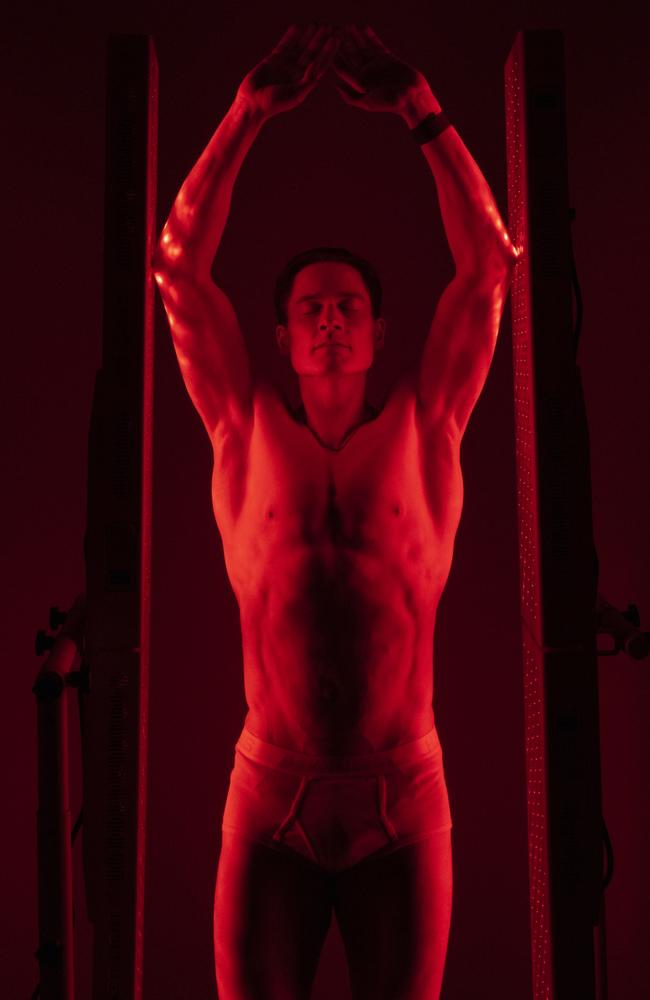
BW:What strikes me is your description of grinding 80 hours, 100 hours a week as “debaucherous” – I don’t think most people running startups think of that kind of behaviour as debaucherous. I think they think of it as, you know, self-sacrificial and necessary. And you’re saying it’s not.
BJ:I’m saying that before the 21st century it was very reasonable to say “live fast, die young” – like, it was guaranteed you’re going to die. Go to war and be a hero, die young. Be an epic entrepreneur, die young. Be an epic politician, die young and let your memory live on. Great. And what’s happened over the past couple of years is, now there’s this legitimate question: Are we the first generation that won’t die? Now, if that’s the case, then the game of existence changes. It changes from “live fast, die young and martyr yourself for a certain cause” to “Don’t die”. So I’ve actually created a new professional sport out of longevity and health.
BW: Am I missing some broader sort of cultural shift or some huge scientific breakthrough that I should be aware of?
BJ:We basically have all of the primary tools needed to substantially slow down the speed of ageing, regenerate organs and reverse age. Now, those things are in the maturation process; we don’t have them as clinical therapies. But if you say, “What would we theoretically need to have mastered as the basic tool set, so that with an advanced technological ability we could solve it?”, it’s there. All the pieces are falling into place. It’s not obvious. You have to kind of squint to see it. But all the pieces are there for this to happen. I think people are going to say two things happened in the early 21st century. We gave birth to superintelligence, and we figured out how to not die.
BW: I think most people are going to be with you on the former. But I think a lot of people, frankly, will say, “Bryan, it’s awesome that your organs are the age of an 18-year-old, but the idea that not dying is within our grasp seems totally implausible.”
BJ: Talent is the ability to hit the target no one else can. Genius is the ability to hit the target no one can see. If you go back through history and look at the improbable things people said that are now normalised and accomplished, you realise everything at one point was improbable. Everything at some point was impossible.
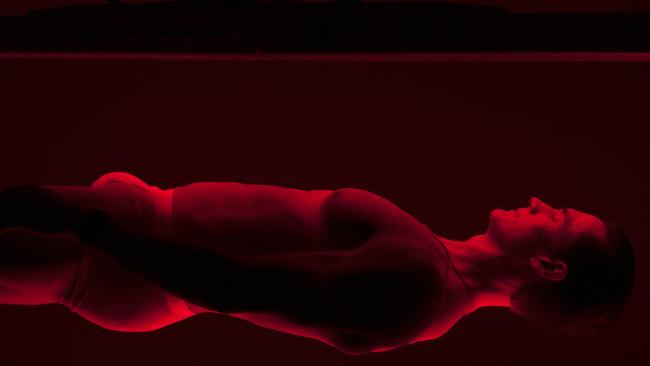
BW: Some of the longevity scientists interviewed in the Netflix documentary say, “This is a really neat way to do your life, but the idea that this is scientific is bogus.” What do you say to that?
BJ: They don’t understand what I’m trying to do. All of us understand intuitively that if your knee hurts, you need to do something to fix it and solve that problem. You get an MRI or ultrasound to try to identify what’s happening, and then you come up with a solution. What they really don’t understand is that I’m trying to solve [the problem of mortality] for human existence and intelligence in the galaxy. I’m not trying to solve for a nature paper. I’m not trying to solve a certain drug to be on trial. I’m trying to say, “We are on this ball in space. What do we do in this moment?” And so they just simply don’t understand what I’m after.
BW:A lot of people will hear about what you do and think to themselves, “He’s spending all of his time trying to not die and missing the things that make life fun!” What do you say to that?
BJ: It’s very easy. Let’s do a thought experiment. Imagine we’re hanging out with Homo erectus. They existed one million years ago. And we say to them, “Homo erectus, tell us: What is the purpose of life?” They’re going to grunt and be like, “Well, it’s about hunting and gathering, and we’re going to move our tribe, but have more and more.” They wouldn’t be able to tell you about quantum mechanics or about smartphones or antibiotics or about the electromagnetic spectrum, or about this new form of art. They’re not concepts that they understand, and so they wouldn’t be able to speak intelligently about what a beautiful life is. They’re just so primitive in their thought processes.
We are equally as primitive. We cannot say anything intelligent about the future anymore. And so the idea that we somehow have mastered existence, and that we know what the purpose of existence is, is so silly of a notion. To me, the most powerful thing for us to do is to be incredibly humble and say, “In this moment, we may not know anything, and it may be in our best interest to try to dissolve all of our preconceived notions of what it means and step into this frontier, because it may be the most extraordinary existence in this part of the galaxy.”
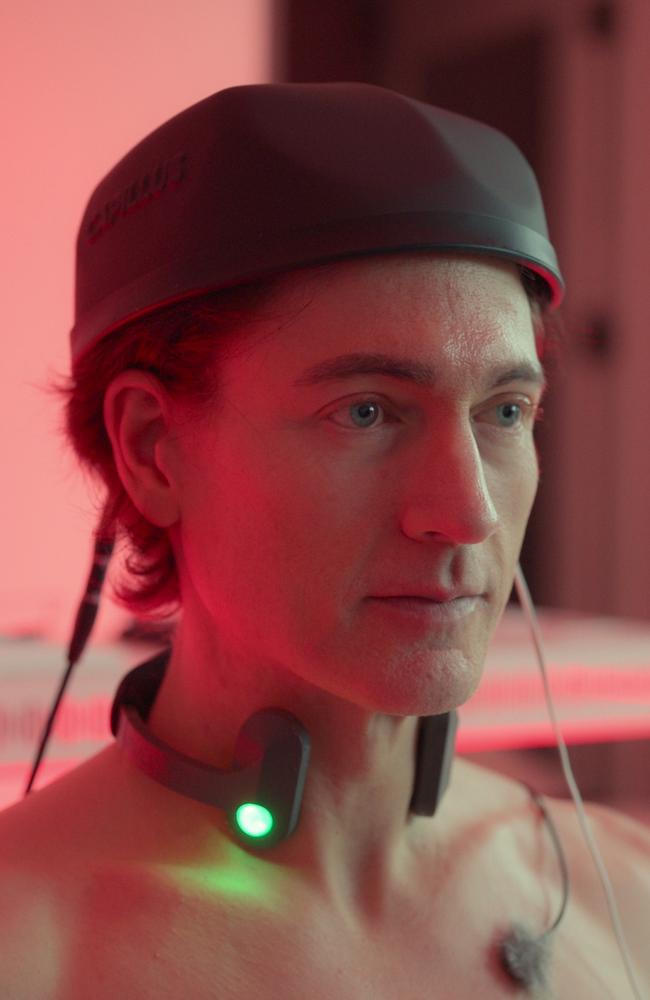
Lightning Round:
BW: When was the last time you ate cake?
BJ: Years ago.
BW: Do you ever indulge?
BJ: I don’t ever indulge or go off of the routine. It’s so painful to indulge. I just hate the thought. It’s gone from a temptation to an abhorrence. I just can’t even imagine doing it.
BW:You can’t imagine having a bit of chocolate?
BJ: No. I’ve spent hundreds of thousands of dollars testing food. I know chocolate is packed with heavy metals. I know it has sugar. I know it has some junk ingredients. I know when it goes into my body, it’s going to accelerate ageing. I know it’s going to negatively affect my sleep; I know tomorrow I’m going to feel that.
BW: When’s the last time you had a cold?
BJ: Years.
BW: I’m going to list a few health trends and you tell me your opinion in a nutshell. Oura rings?
BJ:Great tracker.
BW:Blue-light blockers?
BJ:Good.
BW: UV filters on windows?
BJ: Great.
BW: Barefoot shoes?
BJ: Great.
BW:Ozempic?
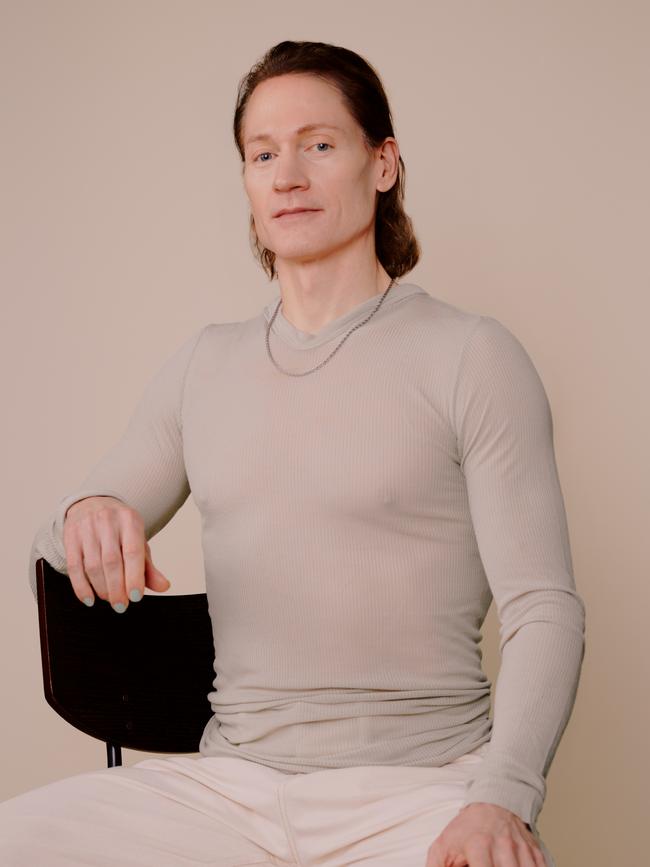
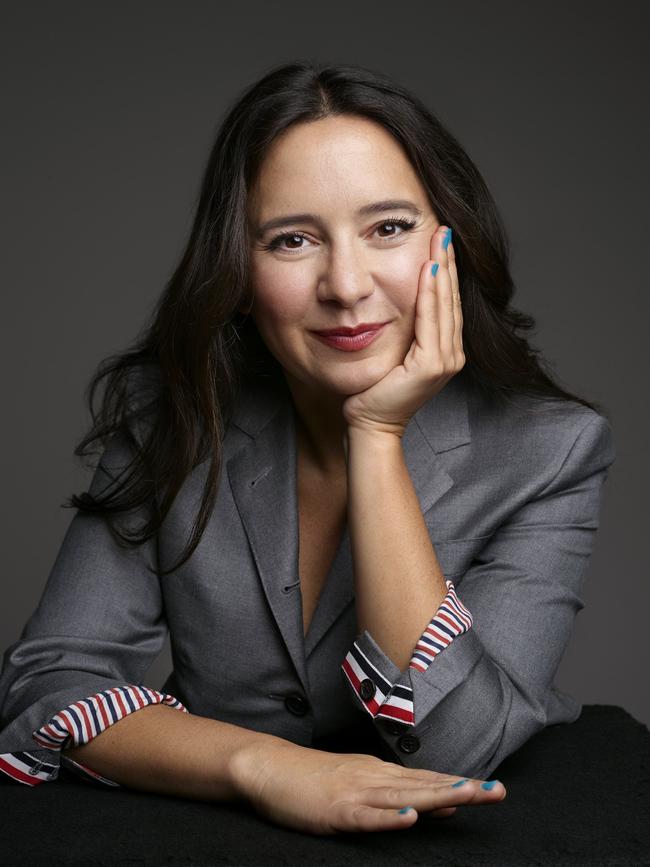
BJ:I’m on Ozempic. I’m on a micro, micro dose – 2.5 units once a week. The benefits for longevity are actually really compelling. There’s a lot of potential benefit from these drugs.
BW: Cold plunge?
BJ: I metabolically cold plunge. My body temperature has declined five degrees Fahrenheit since I’ve been doing this. My temperature is now 93F (33.8C) in the morning. It’s a result of having no inflammation, caloric restriction and time-restricted eating … my metabolism is now so much more efficient that my body temperature has dropped. There’s a lot of evidence that lower body temperature is associated with increased lifespan. So as context, you’d have to swim in ice for a mile to achieve the same body temperature that I have.
BW:Do you think that you’re going to die?
BJ: No.
BW: Really? You think you’ll live forever?
BJ: Forever is not a concept the human mind can contemplate. But will we be able to radically extend life beyond our preconceived imaginations? Yes. Will it happen before my natural limit right now, which is my life expectancy – probably like 80 to 90? The technology is moving so quickly that the species is going to either survive or die in this moment much sooner than my life expectancy would turn up.
BW:Do you think being human is a social construct?
BJ:I think our ideas of being human, and consciousness, are going to change beyond our ability to comprehend in just a very short period of time. I think it will change so dramatically we will be unrecognisable.
BW: How long do you want to live?
BJ: I think of it like this: I’m very happy. I’m alive today. And tomorrow, I have things to do. And I’m excited about when Saturday arrives. I know I have things to do on Sunday I’m pretty excited about. And so living for tomorrow and living forever are identical concepts.



To join the conversation, please log in. Don't have an account? Register
Join the conversation, you are commenting as Logout